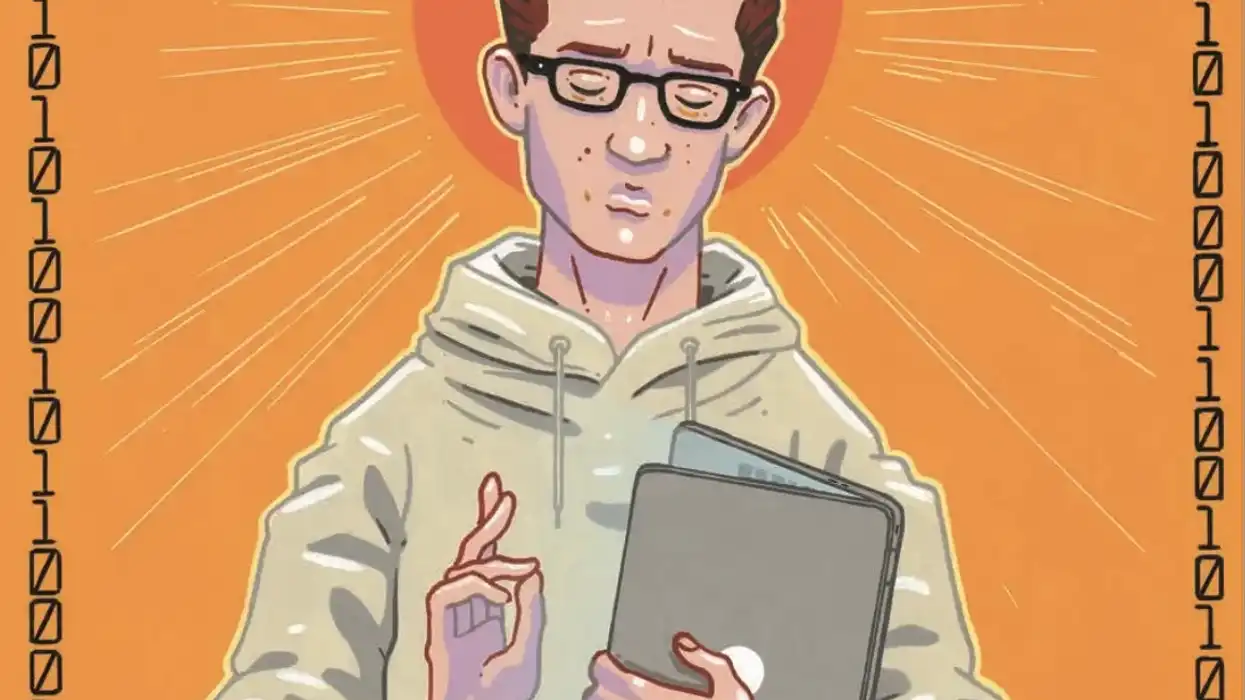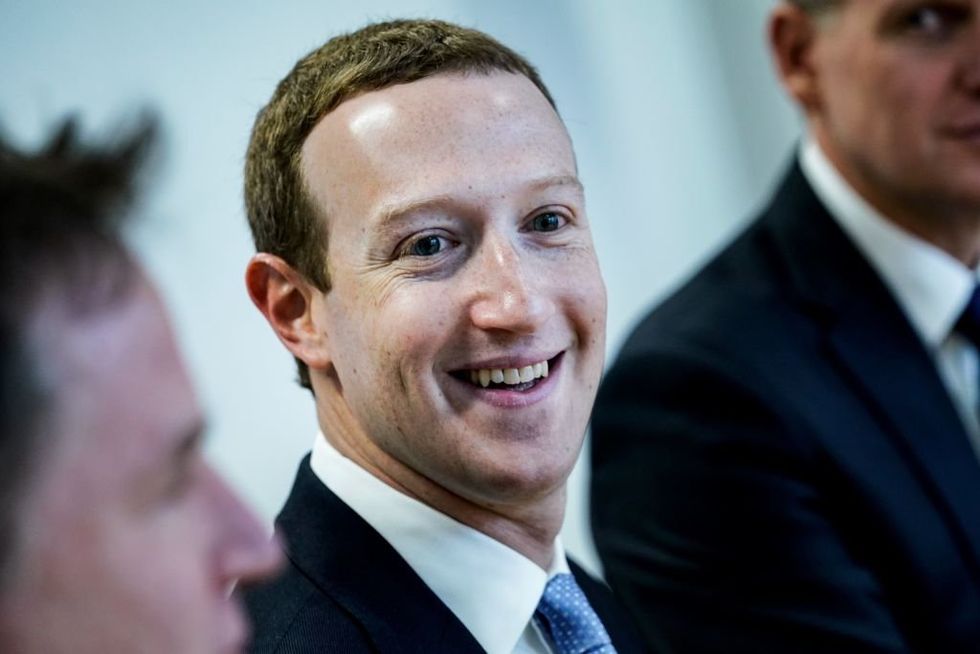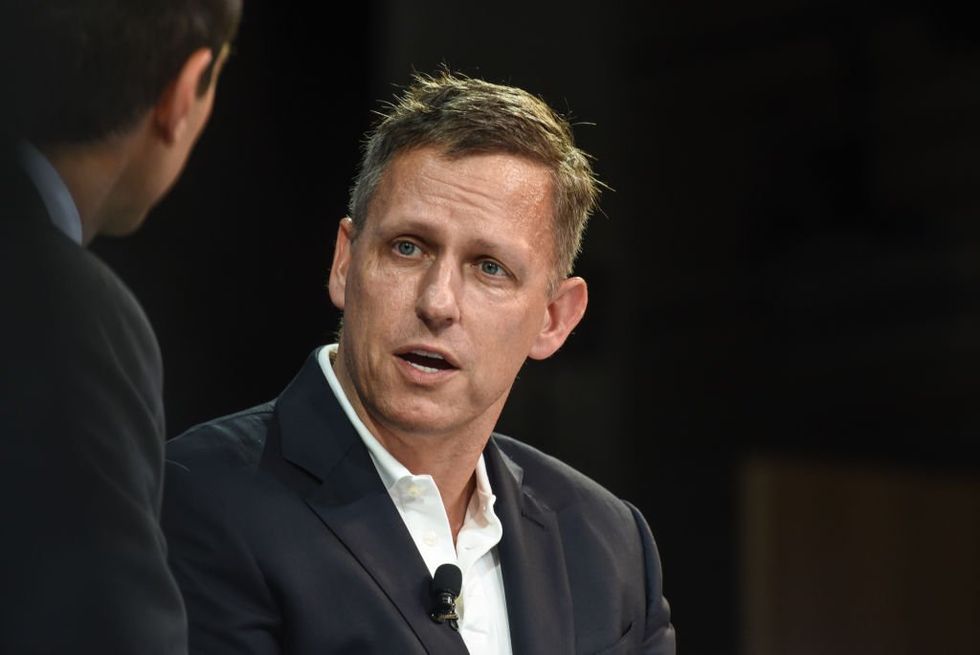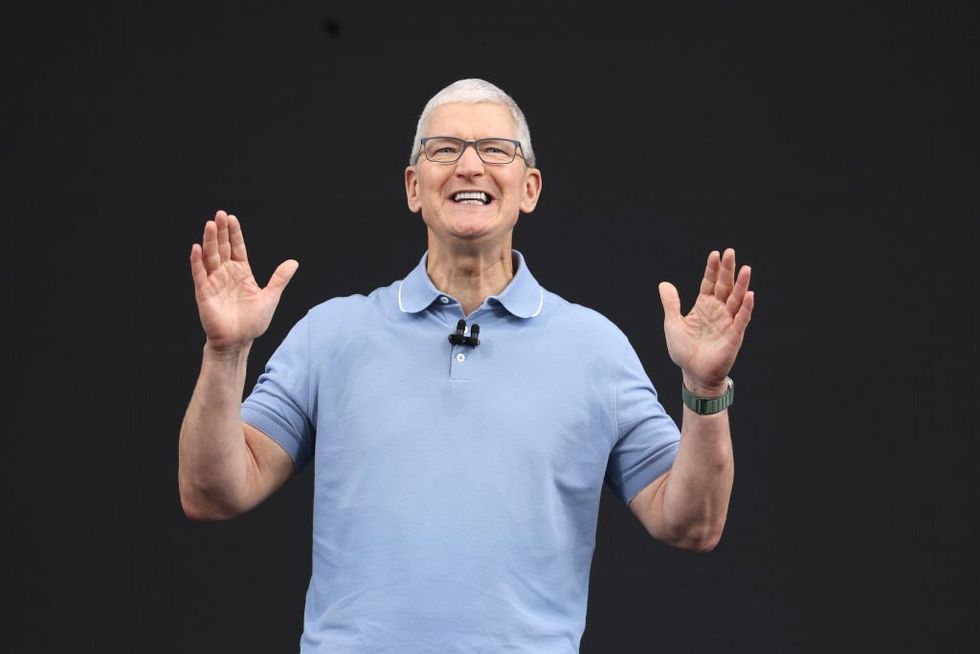
Return Illustration

Many young startup founders trying to emulate Steve Jobs, Elon Musk, or Travis Kalanick move to a hacker house to work on the next big thing. They need to build a sense of mission within the company, but sometimes the hacker house itself becomes a cult around the house leader. At scale, the more dysfunctional of these cults seed the Valley with a sterile narcissism.
Usually, there’s one guy who starts a hacker house. He has a rich family. His startup got venture capital funding. He already had success with a previous company, so he’s trying to cultivate new ones. Many of the founders in these houses know that they need to build a sense of following a mission within the company. Some are willing to risk that their hacker house might become a cult around its leader. And some invite it.
Hacker houses are usually full of young people who are starting new projects and are trying to spin them up as new companies. Life here is characterized by long hours of work and partying hard afterward.
The leader of the group is, most of the time, the founder who has the most funding or connections to the most prestigious people in the industry. “Who follows you on Twitter” is usually a heuristic used for eyeballing how high in the hierarchy someone would perceive you. And in the race to appear as a better version of competitors a lot like you, house leaders can’t help but try to convince their charges they’re the next of the best, of the biggest: Travis Kalanick, Steve Jobs, Elon Musk. In the hacker house, the leader is the killer app. Get in on the ground level, follow his star, get to heaven.

Lights flashing, smoking coming from the stage, and the song being played ends with a roar:
“Somebody make some motherf***ing noise in here!” The party attendees look at the stage of the backyard rock concert, and its screaming lead singer, with a shy kind of indifference. “F*** these people,” the singer grunts into the mic. The roaring music resumes; the flashing lights, the fireworks, the smoke machines chug on. These are the first seconds for the intro episode of the HBO series "Silicon Valley."
In reality, for those hoping to make it from hacker house to hacker heaven, it often means "I want power." The phrase "we are disrupting the market" – a favorite anti-establishment rallying cry – is a common basis for establishing a rigid and uniform internal culture after employees quit their jobs and start living in a hacker house, writing code eighteen hours a day.
Inside, three hoodie-adorned twinks walk into a neon living room both astounded and disgusted by the size and magnitude of the house they’re in. They trash-talk the software that the homeowners wrote and subsequently sold to Google – “Money flying all over Silicon Valley, but none of it seems to ever hit us,” says one, referencing one of the most iconic phrases from the series.
Another guy with a spoon in his hand joins them and after being asked what he’s holding, he says it’s liquid shrimp and remarks upon its taste with an oddly specific comparison. A fifth guy joins the conversation. “Look, Dustin Moskovitz, Elon Musk, Eric Schmidt, whatever-the-guy’s-name-that-created Photrio! I mean, Kid Rock is the poorest person here, apart from you guys. There’s forty billion dollars walking around this party and you guys are standing here drinking shrimp, talking about what cum tastes like – yes, I heard that.”
The party host wrestles the microphone from the screaming rock star and clinks his glass with a spoon calling for a toast. “I got seven words for you: I LOVE GOOLYBEEP’S INTEGRATED MULTI-PLATFORM FUNCTIONALITY!” Some attendees raise their glasses reluctantly.
“But seriously ... a few days ago when we were brunching with ... Barack Obama, I turned to these guys and said, ‘You know, we are making a lot of money ... and yes, we are disrupting digital media, but most importantly, we are making the world a better place ... through constructing elegant hierarchies for maximum code reusability and extensibility.’ ”
We are making the world a better place. We are changing the world. In reality, for those hoping to make it from hacker house to hacker heaven, it often means I want power. The phrase we are disrupting the market – a favorite anti-establishment rallying cry – is a common basis for establishing a rigid and uniform internal culture after employees quit their jobs and start living in a hacker house, writing code eighteen hours a day. It’s often accepted, if not explicitly, that if your startup is not receiving cease-and-desist letters you are really not changing the status quo. In the early days, many employees forgo their salaries, because they believe in the mission of the company. Bad companies keep this policy even after raising millions from venture capitalists.
It’s easy to dismiss the cult of the hacker house as an all-too-characteristic efflorescence of bro-ish narcissism. But instead of sociopathy or some other pathology, there’s something bigger at play, something that reaches more broadly and deeply into human nature.
Most endeavors to suddenly build the next great thing have the feel of a cult. How else can you convince people to give you millions of dollars, quit their jobs, drop out of school, and spend years working on a master plan to remake the world? But a lot of these cults, and the outsized personalities that drive them, are mostly harmless. They don’t put poison in the Kool-Aid they pass around. They juice up and get to work.
As the pandemic of 2020 started, Marc Andreessen’s essay “It’s Time to Build” became an instant Valley classic, reanimating tech entrepreneurs looking to change the world and venture capitalists longing to get in early on the next startup that does exactly that.
It was Andreessen who built Mosaic, the web’s first graphic interface browser. Together with Ben Horowitz, eventual partner at their eponymous venture fund, he built and ran Netscape, a company whose name works a bit like a Rorschach test. Whether you think of it as “the landscape of the net” or “the escape into the net” probably says a lot about you. After what many startup founders would see as an epic saga battling against giants like Microsoft, Andreessen exited his company, started his own fund, and rose to exemplar status with a brand of future-focused optimism – one that makes him, outside the established tech journalism industry, at least, hard to hate.
Such legend and lore for noobs to imitate can’t help but fuel new cults of personality at the entry level. “Media is important because it’s the narratives about what is good, what is bad,” former Coinbase CTO Balaji Srinivasan said on the "Pod of Jake" podcast. “So many people got into tech actually because of the movie 'The Social Network,' again, even that was sort of a left-handed compliment. But at the time, Aaron Sorkin, he couldn’t help but, in a certain way, recognize that [Mark] Zuckerberg is a genius, the scenes of programming in that movie, you know?”
And in the Valley, as opposed to Hollywood, lore control hinges on credibility. Back before journalism turned on tech, Vanity Fair plumbed the culture of cred at its 2014 “New Establishment Summit”; in a live interview with Andreessen and Mike Judge, creator of "Silicon Valley," Kara Swisher asked if the show’s “idiotic” people and situations were “the reality” in the Valley.
“People just can pick up when something is real,” says Judge, breaking into a little nervous laughter. “I’d like to say absurd, rather than idiotic. It’s absurd, it’s a lot of brilliant people,” he continues with a certain empathy, “who sometimes can barely function in normal social situations and have billions of dollars.” The crowd giggles. “Oh, hi Marc.”
Andreessen interjects. “Well, I know every single person in the show, like in real life, like every single one. And not the actors, the actual characters. Every single thing in it is accurate – every line, every person, every event, the way they are combined makes it absurd, but is highly true to real life. And hopefully we’ll talk more about that, because I think there is a deeper meaning to that. Another reason it’s so good, and I don’t think this is well known, but Mike started his career as a Silicon Valley engineer. So Mike has a deep grounding in physics and electrical engineer – so, unlike a lot of people – Aaron Sorkin” – Andreessen stage-coughs – “he actually knows what he’s talking about.”
Andreessen returns to Zuckerberg, Sorkin’s "Social Network" semi-antihero. “I’m not defending every aspect of everything Zuck has done, but I will say that there is, on net, genuine heroism to building something of that scale and magnitude, from scratch.” More so than tapping out, tearing down, or policing into oblivion, the main alternatives on offer in today’s dominant culture. Even as Zuckerberg’s fortunes flag, his legend, no less than that of Steve Jobs, continues to shimmer, larger than life, in the mirror eyes of the hacker house lord angling to make tech lord.
Srinivasan himself has built a sizable startup following. His captivating views on creating new cities and even new countries – "The Network State," as his new book has it – circulate through tweets often lurked by the hungry and ambitious hoping to leverage a hidden gem into the next startup worthy of devotion. Twitter notification – “@balajis is live in a Twitter Space”; roll out of bed, make some coffee, pop on the headphones; think “this Singapore time-zone difference is killing me” and “this is lore in the making.” Srinivasan’s newsletter project of giving grants away for completing micro-tasks like coding or working out have earned him popularity around the world. From the "Pod of Jake" interview:
I’ve been fortunate enough to make it and that’s my contribution to humanity. Hopefully this helps find the next Ramanujans out there in some wartorn area like Syria, but hopefully that kid has a smartphone and we can airlift them out, right? Give them a shot, set up a school in Singapore, and I know it’s an idiosyncratic use of capital, but I’m not the type to spend on Ferraris.
Why? Because, he maintains, at a time when government truth is breaking down and “decentralized truth” is gaining currency (cryptocurrency, to be precise), VCs can make momentous changes poking strategically at the digital reworking of the world. “VCs won’t get most things right by making these big bets,” as he puts it, “but they get the big things right.”
In making big bets on getting big things right, they make big money. And why shouldn’t it go back into the ecosystem? All that’s needed is a receiving class of aspirants of sufficient intelligence and devotion.

“You don’t like your character in HBO’s 'Silicon Valley.'” This time it’s the New York Times to Peter Thiel. This time it’s 2017.
“Deny. I liked him. I watched the first season. My character died. I think eccentric is always better than evil,” said Peter Thiel in a rapid-fire interview at the New York Times.
“Mark Zuckerberg asked you to invest in Facebook while wearing pajamas.”
“Deny. The actual story was that Sean Parker convinced him to go to Sequoia Capital wearing pajamas to insult them at some point.”
Peter himself is notoriously hard to reach, if you are just a startup founder trying to get a meeting with VCs. He’s known to get more than a handful of philosophy professors in his office, discussing the meaning of a chapter of Leo Strauss’ "The City and Man" for an entire day. He earned his reputation starting a fintech company before the 2000s. The aim was to create a new digital private currency that would compete with the dollar. His company Confinity later became PayPal after merging with Elon Musk’s rival fintech X.com.
His essays are also required reading in the tech world. For some tech bros, this is the first time they’re introduced to the ideas from René Girard and Goethe’s "Faust." His interviews talking about politics, technology, society, or the Bible are required listening.
Thiel’s watchword, following Girard, is mimesis – the deeply ingrained human faculty of imitation, especially toward rivals and enemies. With his insistence to think for yourself, to be a contrarian, Thiel strikes at the heart of the mystique of the cult. Two of his favorite interview questions have gone from cliche to archetype in Valley culture: “What is something you know that nobody else knows?
"What is something you believe to be true on which no one agrees with you?” Yet he knows how to speak the language the Valley understands. In his book "Zero to One," Thiel shows how the longing to wield the will over the world changes once cult-like imitation is warded away: “Every great business is built around a secret that’s hidden from the outside. A great company is a conspiracy to change the world; when you share your secret, the recipient becomes a fellow conspirator.”
His intense mimetic rivalry with Musk led to the PayPal merger – but then a string of big solo bets, Facebook, Palantir – that paid big. His most recent wager, however – on politics – is different. The jury is still out on his national and international-level moves, and just what he has learned from them remains something of a secret. Perhaps the best peek in can be gained from contemplating the political upshot of one of Thiel’s biggest investment rules: “Never bet against Elon Musk.”
For some tech bros, this is the first time they’re introduced to the ideas from René Girard and Goethe’s "Faust." His interviews talking about politics, technology, society, or the Bible are required listening.
“'Silicon Valley,' accurate or not accurate?” South by Southwest, 2018. “The show?” Musk replies. “Yeah – um, in fact, reality, the truth, is stranger than fiction. All the crazy stuff you see in that show 'Silicon Valley,' the reality is way crazier than that.”
With his hero’s journey lore of working long hours and sleeping on the Tesla factory floor – sometimes seen as a sort of final-level hacker house – Musk has a devout following around the world, including many talented engineers who give their youth to Tesla, SpaceX, and now Neuralink, to fulfill Elon’s vision of electric cars, spacefaring civilization, and human beings who somehow beat advanced digital technology by joining it ever more intimately.
Elon’s track record and charisma have helped him through difficult times, in his companies and in his life. Most people have now forgotten his early tales of battery-swapping stations instead of charging stations. What sticks is SpaceX rockets landing vertically after returning from orbit. Musk’s current description of his daily life as that of a “tech monastery” feels intuitive now: progress of his sort runs on a kind of wing and a prayer – both the American faith in “making it work” and the faith that such faith is contagious, that it breeds authority.
Much of Musk’s fan base followed him buying Bitcoin and Doge during the pandemic, massively moving the markets of both. And after fighting with other Bitcoin maximalists on Twitter, he publicly backed out from Bitcoin, tanking the market while most of his followers lost a lot of money after recklessly reacting to every single tweet. In this feud, the Bitcoin maximalists follow a different kind of leader, Satoshi Nakamoto. Srinivasan has said the controversially mysterious Bitcoin founder is very “Jesus-like” in his sudden appearance, disappearing after a while but never selling his coins or the promise implicit in them.
Bitcoin maximalists offer salvation by holding their coin and awaiting paradise as crypto protestants fork coins and chains with varying degrees of piety toward Satoshi’s original white paper. Some say they themselves are Satoshi – summoning memories of Jesus telling his disciples to imitate him but not to trust those who claimed to be him. Beyond the cult lies the religion. While hacker houses mimetically reproduce cultish forms, the bets made by the ultimate tech lords raise questions about which kind of church will prevail in our age.

Antonio García Martínez recounts in his book "Chaos Monkeys" that “the culture is what kept twenty-three-year-old kids who were making half a million a year, in a city where there was lots of fun on offer if you had the cash, tethered to a corporate campus for fourteen-hours days. They ate three meals a day there, sometimes slept there, and did nothing but write code, review code, or comment on new features.” He mentions that a founder is the “keeper of messianic vision” that “presents an overwhelming and all-consuming picture of a new different world. Have a mad vision, and you’re a kook. Get a crowd to believe in it as well, and you’re a leader.”
Zuckerberg, he remarks of one characteristic moment working at Facebook, “gave us a rousing speech. In this personality cult, we had slogans on the walls, we were all wearing uniforms, it all felt very North Korean or Cuban almost. And in that moment I realized that the mode-force of history: one egomaniac with a drive and the common man’s desire to be part of a compelling story. Which is what we were, just bit players in Zuckerberg’s story.” His interviewer asks, “What’s bad about that?” “There isn’t anything necessarily wrong at all,” comes the reply. “Facebook is like the Roman Empire, with a strong culture and message, with a strong emperor in power trying to conquer the world.” Or was. That was then. What is now?
Many of the newcomers to the Valley still want to be like Zuck, but most of them fail trying. Engineers and designers whose startups struggle go to someone higher for help, in exchange for equity or writing code, or, more rarely, something else. In the worst cases, some hacker houses have given rise to cases of alleged sexual assault, harassment, or simply some form of extortion.
Young people with dreams of “making it” become mentally vulnerable after the disfiguring cycle of ninety-hour work weeks punctuated with launch parties for rival startups, competitions with fresher talent, and waves of departures claiming half their co-workers. Amid these torments, founders of other startups can get forlorn bros to join without even negotiating much. How do you negotiate with a savior who has arrived for your salvation?
Of course, there are alternatives to the hacker house. There is the startup incubator. The most prestigious in the Valley remains Y Combinator, whose founder Paul Graham oversaw the rise of portfolio companies like Airbnb, Dropbox, Reddit, Stripe, DoorDash, Coinbase, Instacart, and Twitch.
It is, in a salutary sense, more like a mafia than a cult: Martínez recounts in "Chaos Monkeys" how Paul threatened to ban two major blue-chip VCs from “demo day” (where startups pitch to investors with billions of dollars at stake) to protect him from a lawsuit backed by those VCs. The logic was simple, familiar, and devoid of mind games: If you mess with one of the family, even a small company, you mess with the whole family.
But the incubator is in another sense even more like a factory than Musk’s shop. Bismarck Analysis founder Samo Burja remarked in the Valley magazine Palladium that “there were people who did remarkable things by working in software, but once it became commoditized and standardized, ironically by people like Paul Graham, deeply insightful people, they made [YCombinator] like a startup factory. Well, as soon as something is a factory, then you are a factory worker.”
Graham’s 2008 blog post “Cities and Ambition” can be read as a warning about the Valley. The pathologies from the more dysfunctional of these cults come from a high base layer of narcissism throughout the Valley. Now that more of society is encompassed by the technology built in California – all the people in tech, from the lowest-level code monkey to the management of a company, they all have a feeling of importance, and they always want more users to control.
When you ask what message a city sends, you sometimes get surprising answers. As much as they respect brains in Silicon Valley, the message the Valley sends is: you should be more powerful. That’s not quite the same message New York sends. Power matters in New York too of course, but New York is pretty impressed by a billion dollars even if you merely inherited it. In Silicon Valley no one would care except a few real estate agents. What matters in Silicon Valley is how much effect you have on the world. The reason people there care about Larry and Sergey is not their wealth but the fact that they control Google, which affects practically everyone.
The reality is that venturing into a project that requires hundreds of thousands of hours from multiple people to bring into existence requires some sense of purpose. Turning these startups into mere money in and money out will make it impossible to build anything that stands.
In an interview, Airbnb CEO Brian Chesky tells an old parable when thinking about hiring: “There are two men laying bricks, and a third guy comes up to one of them and asks ‘What are you building?’ The bricklayer says, ‘I’m building a wall.’ The third guy then turns around and asks the other bricklayer what he’s building. He replies, ‘I’m building a cathedral.’”
“It’s the idea,” Chesky adds, “that you’re not building financial systems, you’re not building a website, you’re not designing different screens and mockups. You’re building this mission. You’re creating this kinda-world.”
Can a kinda-world ever attract true devotion? Maybe Heinrich Heine was right: “People in those old times had convictions; we moderns only have opinions. And it needs more than a mere opinion to erect a Gothic cathedral.”
Pablo Peniche is a computer programmer and writer based in Mexico City.